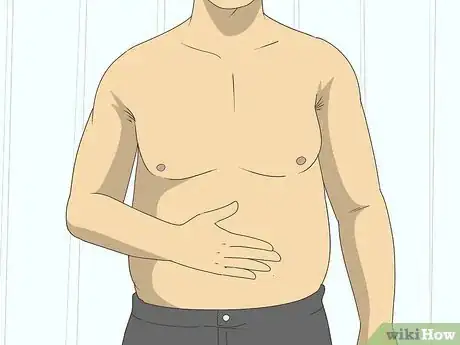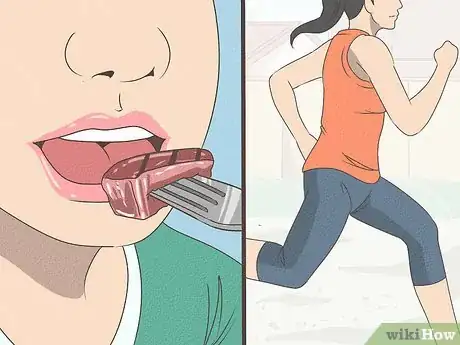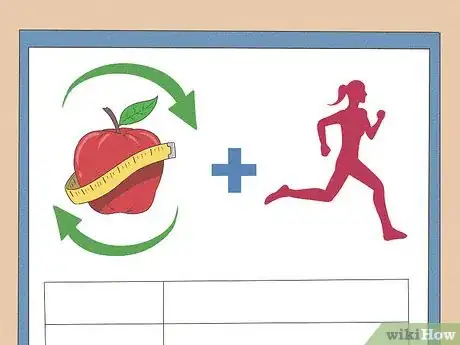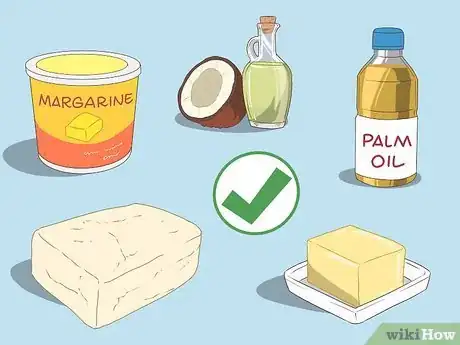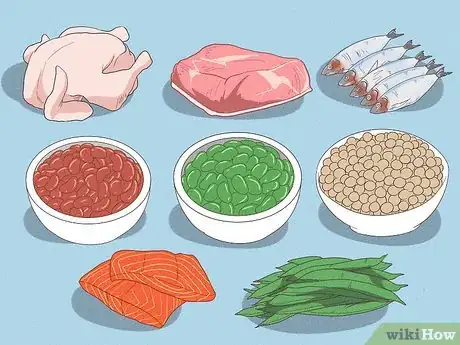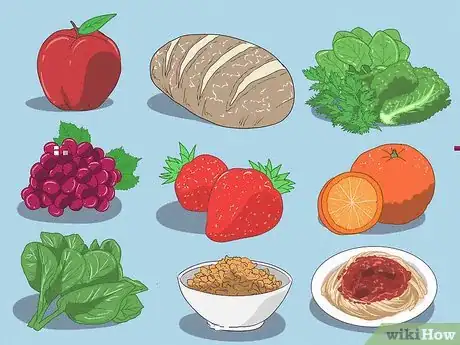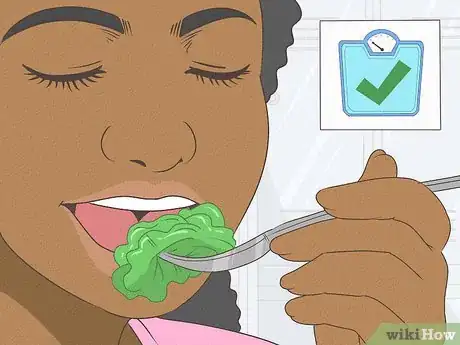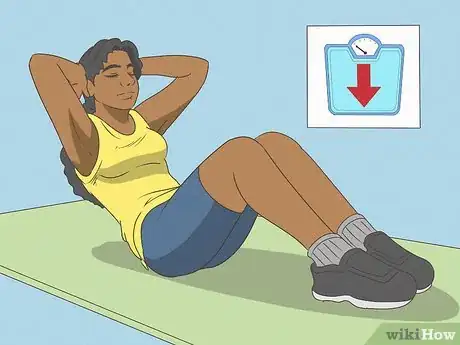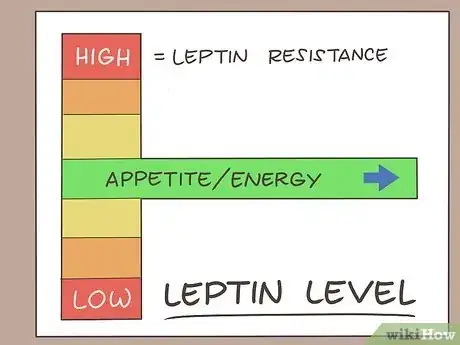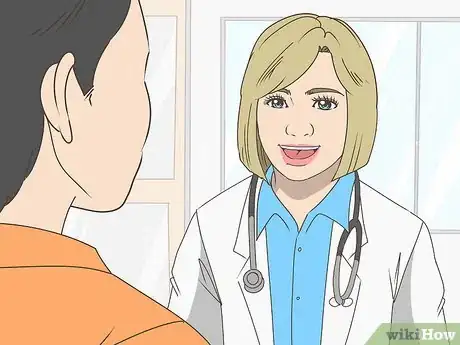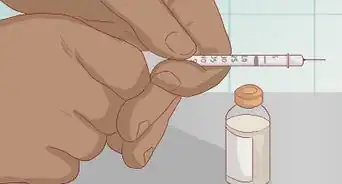This article was co-authored by wikiHow Staff. Our trained team of editors and researchers validate articles for accuracy and comprehensiveness. wikiHow's Content Management Team carefully monitors the work from our editorial staff to ensure that each article is backed by trusted research and meets our high quality standards.
There are 8 references cited in this article, which can be found at the bottom of the page.
This article has been viewed 16,737 times.
Learn more...
If you’ve ever struggled with your weight, you may have heard the term “leptin” thrown around. In simple terms, leptin is one of the ways your body helps regulate your appetite—letting you know when you’re hungry and when you’re full. If your leptin levels are too high, you can all have sorts of signals sent to your brain that can throw your whole appetite and energy system out of line. Fortunately, there are healthy and manageable ways for you to get your leptin levels back to where they need to be.
Steps
What happens when leptin levels are high?
-
1It can be difficult for you to maintain a healthy body weight. Leptin is a hormone that your body produces to signal the feeling of satiety—the classic “I’m full” feeling you get after you eat a meal. If you’re overweight or if you have a condition known as leptin resistance, it can take more leptin to make you feel full. If your body makes too much leptin, it can mess with the signals sent to your brain that help you maintain a healthy weight.[1]
-
2Leptin also helps regulate your appetite and energy levels. If your leptin levels are out of whack, your body can send confused signals to your brain and make you feel hungry even though you don’t actually need to eat, which can make weight loss super difficult.[2]
How do I lower my leptin levels?
-
1Long-term changes in your diet and regular exercise can help. Leptin is naturally released by your body’s fat cells, so your weight plays a big role in how your body maintains a healthy balance. Focus on making sustainable changes that you can keep up. Start small—go for a daily walk or try to jog for 15-20 minutes each day. In time, you’ll develop lifestyle habits that can help reduce your leptin levels.[3]
-
2Try following a low-carb diet to help reduce high levels of leptin. Studies show this to be effective.[4] Making sudden and dramatic changes to your diet can be tough, though. It can also be difficult to keep up your changes. Your best bet is to get started on a low carb diet by making small, incremental changes that you can keep up in the long run.
-
3Taking a-lipoic acid and fish oil supplements may also help lower leptin. A study showed that people taking alpha-lipoic acid and fish oil lost more weight and had a greater decrease in leptin than people in the control group.[5] Taking .3 grams of α-lipoic acid and 1.3 grams of fish oil a day may be able to help you reduce your total leptin levels.
What foods reduce leptin resistance?
-
1Low-fat proteins can help reduce the levels of fat in your blood. Choose fish, poultry, beans, and soy for healthy protein sources that aren’t as likely to contribute to higher levels of leptin. Avoid fatty meats, red meat, and egg yolks.[7]
-
2Whole grains, fruits, and veggies are always a good choice. Not only are whole-grain bread, cereal, and pasta filling and nutritious, they may also help reduce leptin resistance. Load your plate up with lots of tasty fresh veggies to help fill you up without spiking your blood sugar or fat levels. If you want something sweet, choose a piece of fruit instead of something processed or with lots of added sugar.[8]
How can I fix my leptin resistance naturally?
-
1Stick to a healthy diet for the best option. Focus on a healthy diet that doesn’t have too much fat and sugar. Stick with your healthy diet and in time you’ll lose weight and keep it off. Maintaining a healthy weight can help naturally balance your leptin levels.[9]
-
2Regular exercise can help you lose weight and restore healthy leptin levels. While a healthy diet is super important, you can kick it up a notch by getting out there and getting moving! Exercise has a whole host of health benefits, but one of the major bonuses is that you’ll burn fat and lose weight. Losing weight can help your body maintain a healthy balance of leptin.[10]
Warnings
- Talk to your doctor before you make any sudden changes to your diet or lifestyle to make sure they’re safe for you.⧼thumbs_response⧽
- Avoid taking medications, supplements, or diet pills without talking to your doctor first.⧼thumbs_response⧽
References
- ↑ https://www.endocrine.org/patient-engagement/endocrine-library/hormones-and-endocrine-function/endocrine-related-organs-and-hormones%C2%A0
- ↑ https://www.endocrine.org/patient-engagement/endocrine-library/hormones-and-endocrine-function/endocrine-related-organs-and-hormones%C2%A0
- ↑ https://pubmed.ncbi.nlm.nih.gov/11157319/
- ↑ https://news.harvard.edu/gazette/story/2018/11/key-to-long-term-weight-loss-may-be-as-simple-as-more-fat-fewer-carbs/
- ↑ https://pubmed.ncbi.nlm.nih.gov/25594166/
- ↑ https://universityhealthnews.com/daily/nutrition/leptin-foods-answer-always-hungry/
- ↑ https://universityhealthnews.com/daily/nutrition/leptin-foods-answer-always-hungry/
- ↑ https://universityhealthnews.com/daily/nutrition/leptin-foods-answer-always-hungry/
- ↑ https://pubmed.ncbi.nlm.nih.gov/11157319/
